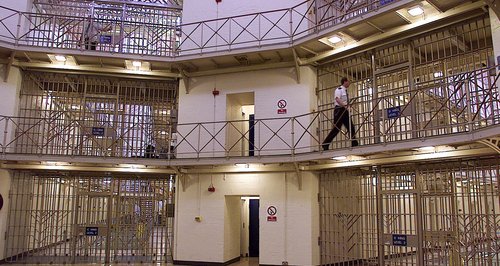On Air Now
The Capital Evening Show with Jimmy Hill 7pm - 10pm
20 November 2018, 05:22 | Updated: 20 November 2018, 05:25

HMP Manchester was found by inspectors to have become less safe and respectful over the past four years.
Peter Clarke, HM Chief Inspector of Prisons, said that in 2014 the prison had been assessed as reasonably good across all four of HM Inspectorate of Prisons’ ‘healthy prison tests.’
In June and July 2018, only its rehabilitation and release work had remained reasonably good. It was now assessed as ‘not sufficiently good’ for safety, respect and purposeful activity, in what Mr Clarke described as a “disappointing inspection”. He warned the prison against complacency in its view of its own performance.
Levels of violence were significant, had increased since the last inspection and were now comparable to similar prisons. In the six months to the inspection there had been 177 assaults, 45 of them on staff, a threefold increase since 2014. Use of force by staff was also increasing and was now also comparable to levels in similar prisons. The quality of scrutiny had not, however, kept pace with the increase
Two-thirds of prisoners said they had felt unsafe during their time at Manchester, and a third felt unsafe at the time of the inspection. Nearly two-thirds indicated that they had been victimised by other prisoners and over half felt victimised by staff.
Inspectors noted good, if new, work to tackle poor behaviours at the jail, though the prison was urged to address its weakness in
“consideration of the influence on violence of poor living conditions, the attitude of staff and illicit drug use.” The prison had a significant drugs problem.
Some 71% of prisoners said staff treated them with respect and a similar number said they knew a member of staff they could turn to if they had a problem. Inspectors saw “considerable staff enthusiasm” on a wing dedicated to the reintegration of difficult and challenging individuals and, generally, there were many positive interactions between staff and prisoners.
However, Mr Clarke added: “Work towards the creation of a rehabilitative culture, an aim of the prison, was slow. There was evidence, including prisoners’ perceptions of victimisation by staff, that pointed to a small but influential number of operational staff who were disengaged and impeding the positive aims of the prison. The need to encourage and support the positive contribution that staff should be able to make was of sufficient importance, in our view, to make it the subject of one of our main recommendations.” The report noted that this group “demonstrated little respect for prisoners and sometimes fellow staff.”
Inspectors found too many prisoners, some 40%, locked up during the working day, despite the provision of sufficient activity places for all.
Public protection work, however, in a prison with many high-risk prisoners, was generally good and release planning was reasonable in addressing most needs.
Overall, Mr Clarke said:
“HMP Manchester is a complex prison with a very important role in protecting the public. The prison seemed to be adequately resourced and we were told that the prison had been improving of late. Local managers had a stated commitment to ensuring the basics were right, although if we had an overarching criticism it would be that, in fact, the basics were not always well attended to. The prison had to guard against complacency and in many respects ‘up its game’.”